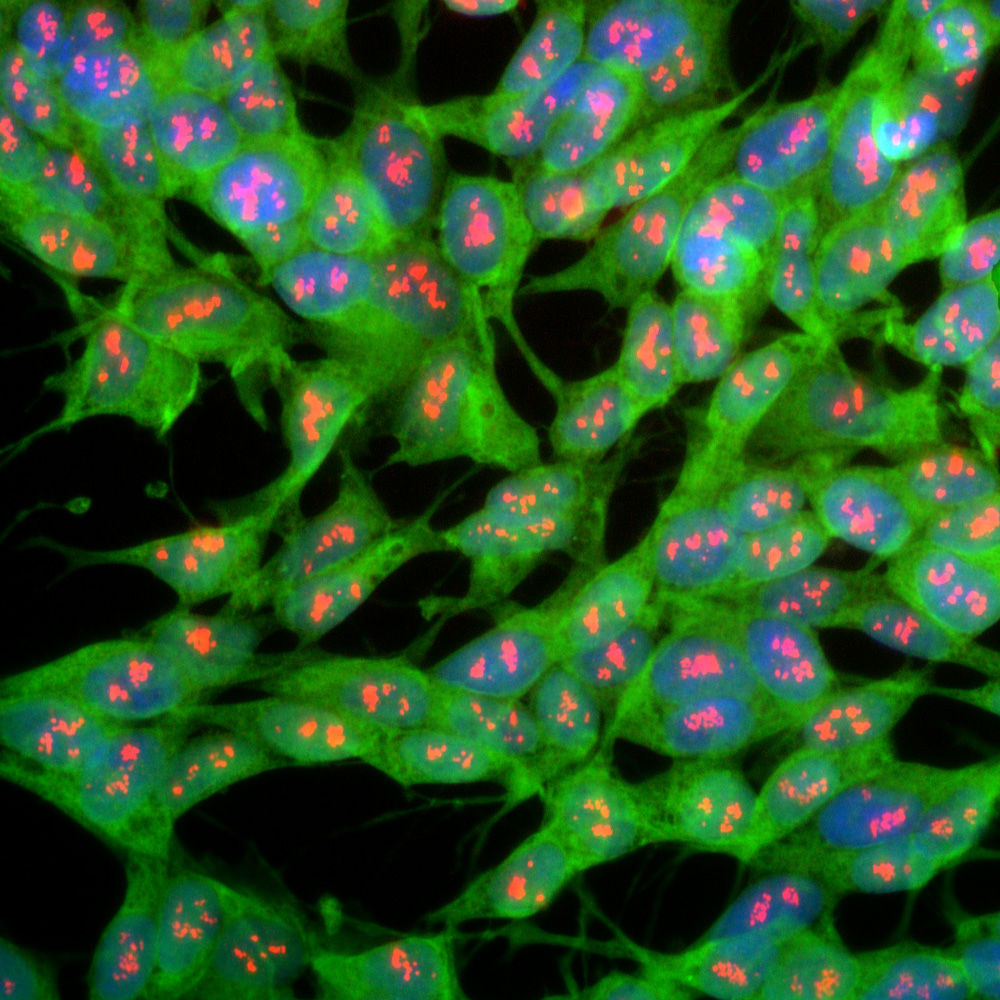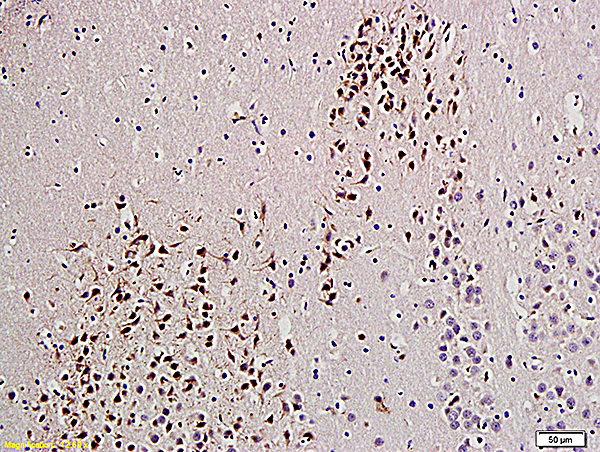![pgp9.5 (UCHL-1)(13C4), CF405S conjugate, 0.1mg/mL [26628-22-8] pgp9.5 (UCHL-1)(13C4), CF405S conjugate, 0.1mg/mL [26628-22-8]](https://biotium.com/wp-content/uploads/2018/11/placeholder-148-239.png)
pgp9.5 (UCHL-1)(13C4), CF405S conjugate, 0.1mg/mL [26628-22-8]
BNC040147
ApplicationsImmunoFluorescence, Western Blot
Product group Antibodies
ReactivityBovine, Canine, Guinea Pig, Human, Mouse, Porcine, Rabbit, Rat, Sheep, Zebra Fish
TargetUCHL1
Overview
- SupplierBiotium
- Product Namepgp9.5 (UCHL-1)(13C4), CF405S conjugate, 0.1mg/mL [26628-22-8]
- Delivery Days Customer9
- ApplicationsImmunoFluorescence, Western Blot
- CAS Number26628-22-8
- CertificationResearch Use Only
- ClonalityMonoclonal
- Clone ID13C4
- Concentration0.1 mg/ml
- ConjugateOther Conjugate
- Gene ID7345
- Target nameUCHL1
- Target descriptionubiquitin C-terminal hydrolase L1
- Target synonymsHEL-117, HEL-S-53, NDGOA, PARK5, PGP 9.5, PGP9.5, PGP95, SPG79, SPG79A, UCHL-1, Uch-L1, ubiquitin carboxyl-terminal hydrolase isozyme L1, epididymis luminal protein 117, epididymis secretory protein Li 53, neuron cytoplasmic protein 9.5, ubiquitin carboxyl-terminal esterase L1 (ubiquitin thiolesterase), ubiquitin thioesterase L1, ubiquitin thiolesterase
- HostMouse
- IsotypeIgG2a
- Protein IDP09936
- Protein NameUbiquitin carboxyl-terminal hydrolase isozyme L1
- Scientific DescriptionThis MAb reacts with a protein of 20-30 kDa, identified as PGP9.5, also known as ubiquitin carboxyl-terminal hydrolase-1 (UchL1). Initially, PGP9.5 expression in normal tissues was reported in neurons and neuroendocrine cells but later it was found in distal renal tubular epithelium, spermatogonia, Leydig cells, oocytes, melanocytes, prostatic secretory epithelium, ejaculatory duct cells, epididymis, mammary epithelial cells, Merkel cells, and dermal fibroblasts. Furthermore, immunostaining for PGP9.5 has been shown in a wide variety of mesenchymal neoplasms as well. A mutation in PGP9.5 gene is believed to cause a form of Parkinsons disease. Primary antibodies are available purified, or with a selection of fluorescent CF® Dyes and other labels. CF® Dyes offer exceptional brightness and photostability. Note: Conjugates of blue fluorescent dyes like CF®405S and CF®405M are not recommended for detecting low abundance targets, because blue dyes have lower fluorescence and can give higher non-specific background than other dye colors.
- SourceAnimal
- ReactivityBovine, Canine, Guinea Pig, Human, Mouse, Porcine, Rabbit, Rat, Sheep, Zebra Fish
- Storage Instruction2°C to 8°C,RT
- UNSPSC41116161








